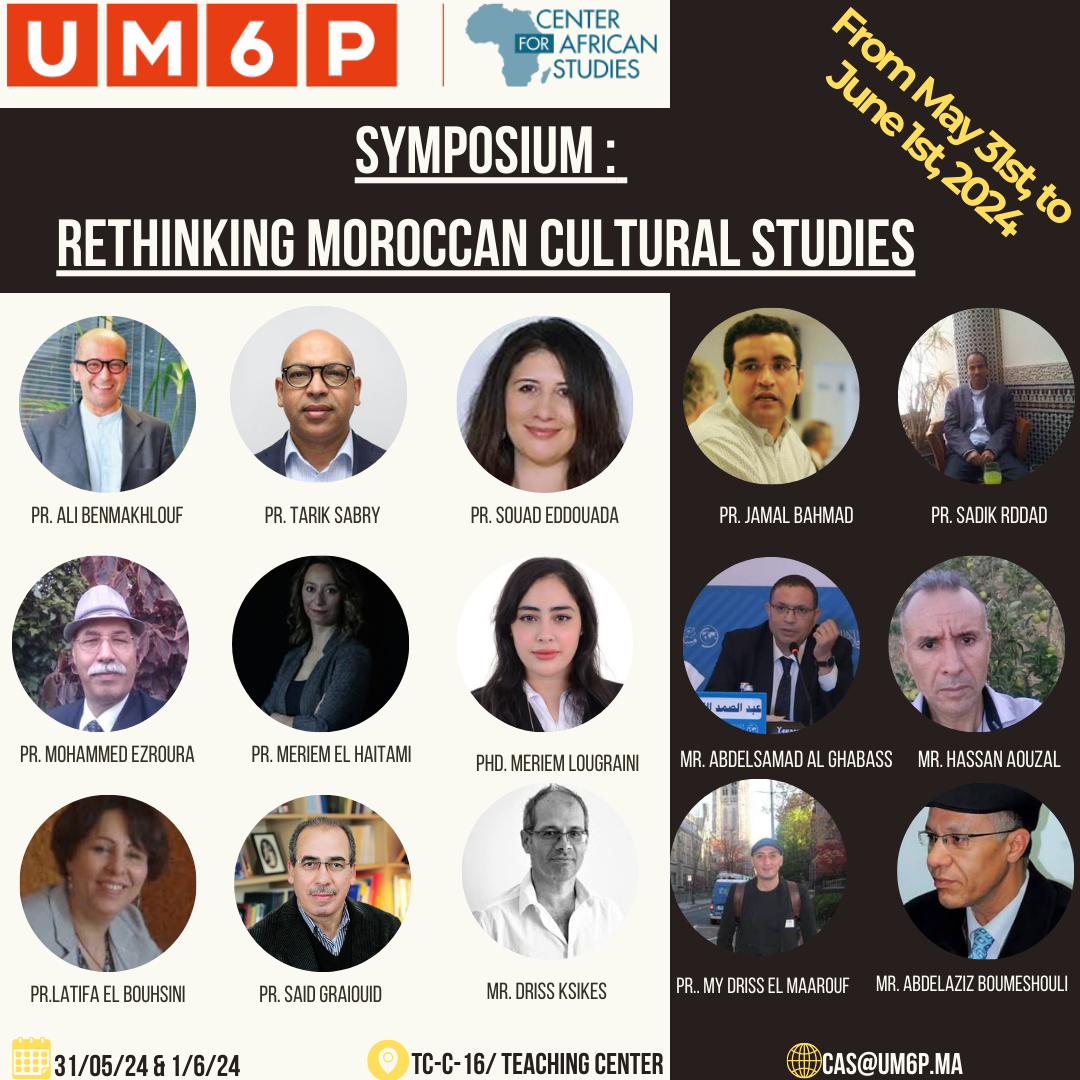Tarik Sabry Spearheads Symposium on Moroccan Cultural Studies at UM6P
 In an ambitious move to reshape the academic landscape of Moroccan cultural studies, Professor Tarik Sabry is organizing a pivotal symposium titled “Rethinking Moroccan Cultural Studies” at the University of Mohamed 6 Polytechnic (UM6P) in Morocco. Scheduled for May 31st to June 1st, 2024, this event is set to gather a host of Moroccan scholars from diverse fields such as media, culture, history, gender studies, and philosophy.
In an ambitious move to reshape the academic landscape of Moroccan cultural studies, Professor Tarik Sabry is organizing a pivotal symposium titled “Rethinking Moroccan Cultural Studies” at the University of Mohamed 6 Polytechnic (UM6P) in Morocco. Scheduled for May 31st to June 1st, 2024, this event is set to gather a host of Moroccan scholars from diverse fields such as media, culture, history, gender studies, and philosophy.
The symposium, hosted by the Centre for African Studies at UM6P, aims to redefine the theoretical and practical frameworks within which Moroccan cultural studies are approached and taught in Moroccan universities. Discussions will focus on critical questions about the historical moments the field should respond to, the theoretical paradigms it should employ, and how to advance both theoretical and practical strategies for the study of contemporary Moroccan culture.
Sabry’s initiative aligns with UM6P’s strategic goal to decolonize knowledge, reflecting a broader shift in academic circles to reevaluate and transform traditional Eurocentric educational frameworks. By bringing together leading Moroccan intellectuals, the symposium seeks to foster a more localized and nuanced understanding of Moroccan culture and its global interactions.
Furthermore, the proceedings from this symposium are set to be edited by Sabry into a double issue of the prestigious “Middle East Journal of Culture and Communication,” providing a significant academic platform to disseminate the insights and research findings discussed during the event. This publication will contribute to the symposium’s long-term impact, extending its reach beyond the immediate academic community to influence cultural studies research and pedagogy globally.
As the dates of the symposium approach, the academic community and stakeholders in Moroccan cultural studies eagerly anticipate the discussions that will unfold, hoping for transformative outcomes that will drive forward the decolonization of knowledge and the rethinking of cultural studies in Morocco and beyond.






